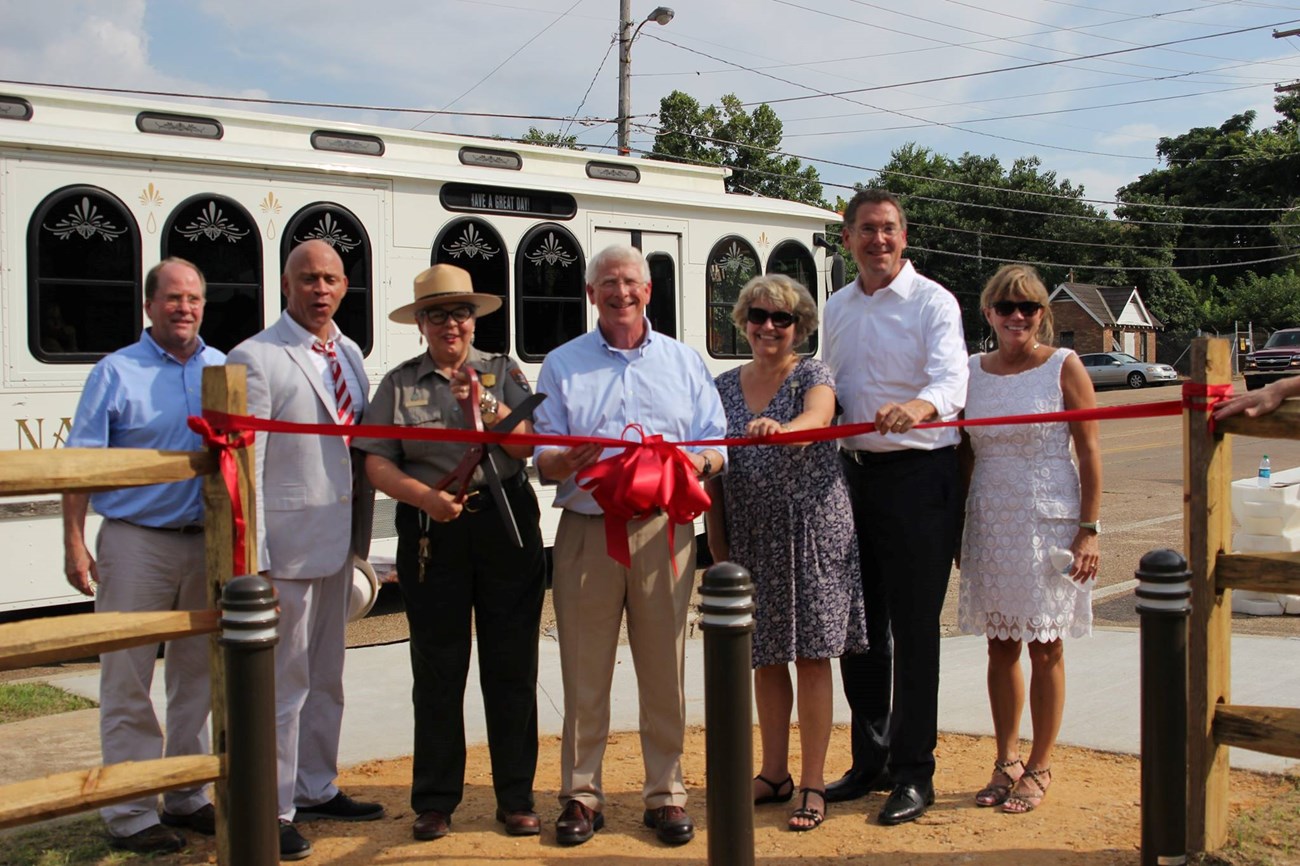
NPS Collection Natchez National Historical Park tells the story of Natchez in the American South. The park protects the sites and structures associated with the peoples of Natchez and its surrounding area from earliest inhabitants to the modern era. The name Natchez is derived from the "Natchez" American Indians who inhabited the area at the time of European exploration. The historic sites maintained by the park, and the surrounding preservation district, give visitors an opportunity to understand the region's social political, and economic development, particularly in the pre-and-post Civil War era's. They also provide insights into the region's commercial and agricultural history, especially in relation to the Mississippi River, slavery, and cotton. The park is composed of five NPS owned properties: Forks of the Road, Fort Rosalie, Melrose, the William Johnson House, the Natchez Visitor Center, and a larger area known as the preservation district.
Constructed in the 1840s, the suburban estate, Melrose, was built by a wealthy attorney and cotton planter and was home to his family and 22 enslaved people who lived and worked there. Recognized as a National Historic Landmark, the main house on the estate has been called "One of the Great Houses of the American South." The estate is recognized not only for the high quality and finishes of the Greek Revival mansion and intact grouping of outbuildings, but also for the collection of 19th century original furnishings that have been well maintained and preserved over the years.
William Johnson, known as "The Barber of Natchez," was born into slavery but was freed at the age of 11. Johnson eventually owned several barber shops, rental property, a farm, and timberland but his greatest contribution may very well be his lengthy personal and business diary that offers a glimpse of antebellum southern life and relations between whites and non-enslaved blacks. William Johnson's townhouse is in downtown Natchez.
Established by the French among the Natchez people on the eastern bank of the Mississippi River in 1716, Fort Rosalie was intended to guarantee control of the largest and most navigable river in North America. The fort anchored a European settlement that survived three different periods of European rule over the course of the 1700s (French, British, and Spanish) and developed into the capital of the Mississippi Territory under United States governance at the end that century. The settlement coalesced into the town of Natchez, and the territory into the state of Mississippi in 1817.
The community of Natchez, the nonprofit Historic Natchez Foundation, and the National Park Service work in partnership to enhance the city's preservation landscape. Today, much of the city's 19th century built environment maintains a high level of preservation through the designation of 8 National Register of Historic Places districts, 13 national historic landmarks, and the United Nations Educational, Scientific, and Cultural Organization (UNESCO) recognized Forks of the Road slave market site. These preserved sites provide a collective historic context that includes NPS owned properties and strengthens educational and interpretive efforts between the National Park Service and the surrounding community. |
Last updated: June 11, 2021
